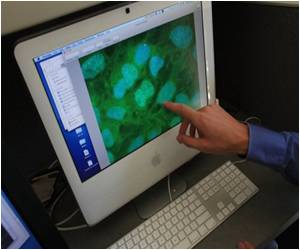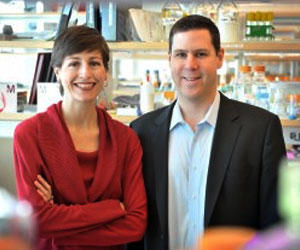
The study got published in the journal Nature Communications. These results could accelerate the development of new therapies targeting cancer.
Malumbres's group had previously discovered that the inactivation of another APC/C protein, Cdc20, prevented cell division. These results caught the attention of pharmaceutical companies, who are already developing the first inhibitors from the complex. These molecules have caused controversy due to the possible side effects of blocking Cdh1, which is considered a tumour suppressor.
Manuel Eguren has analysed the biological consequences of Cdh1 elimination in rapidly dividing cells, as part of his doctoral research project in Malumbres's group; he focused on progenitors from the nervous system during embryonic development in mice.
Via a detailed biochemical and cell study, researchers have discovered that the absence of Cdh1 causes DNA damage in cells. This defect causes cell death and leads to alterations in the development of the nervous system such as hydrocephalus, characterised by abnormal accumulation of fluid on the brain.
"Our results solve the controversy about the possible side effects of APC/C inhibitors", says Malumbres, adding that: "we have shown in vivo that their elimination leads to the death of rapidly dividing cells".
Advertisement
The study is now focused on proposing a precise strategy for specific tumour types. "It could work in glioblastomas given that our study is based on brain progenitors, but we believe it could be extended to include other tumour types", say the researchers.
Advertisement
Source-Eurekalert











